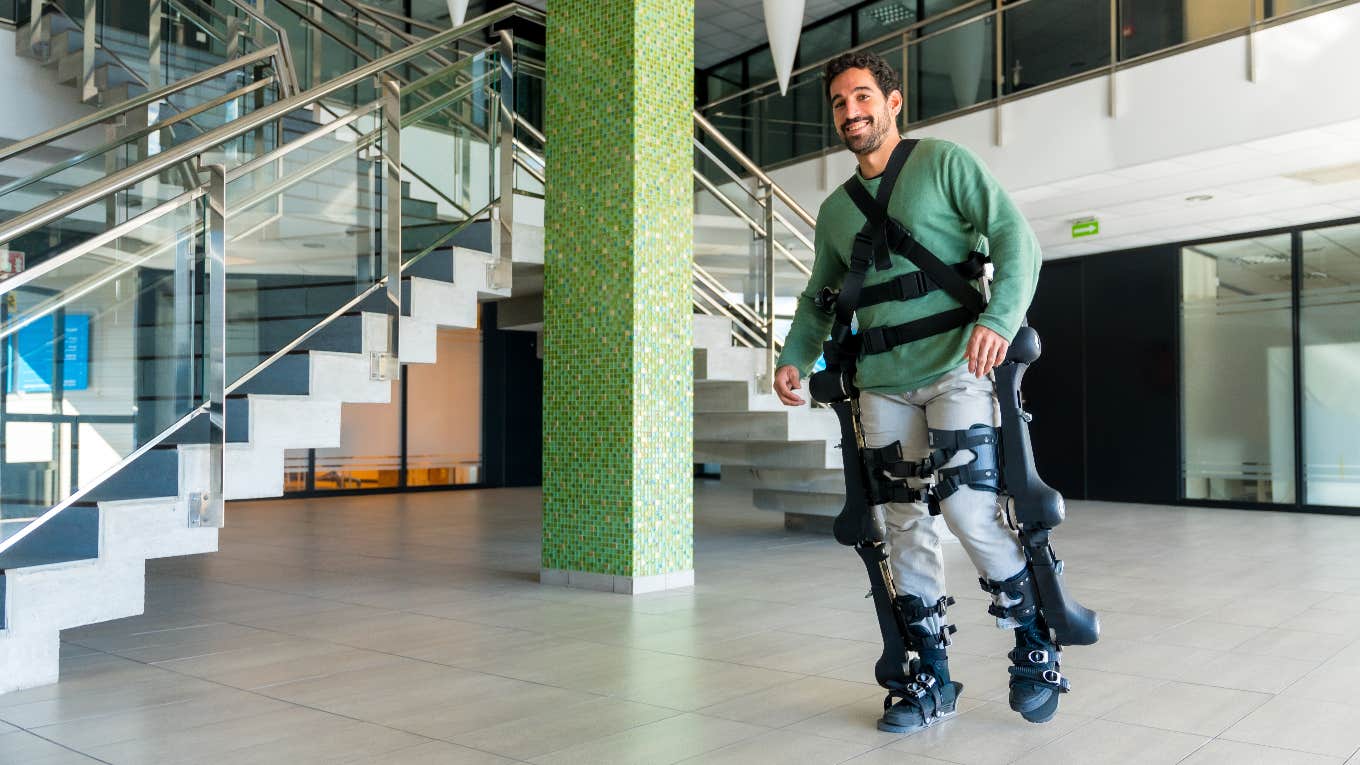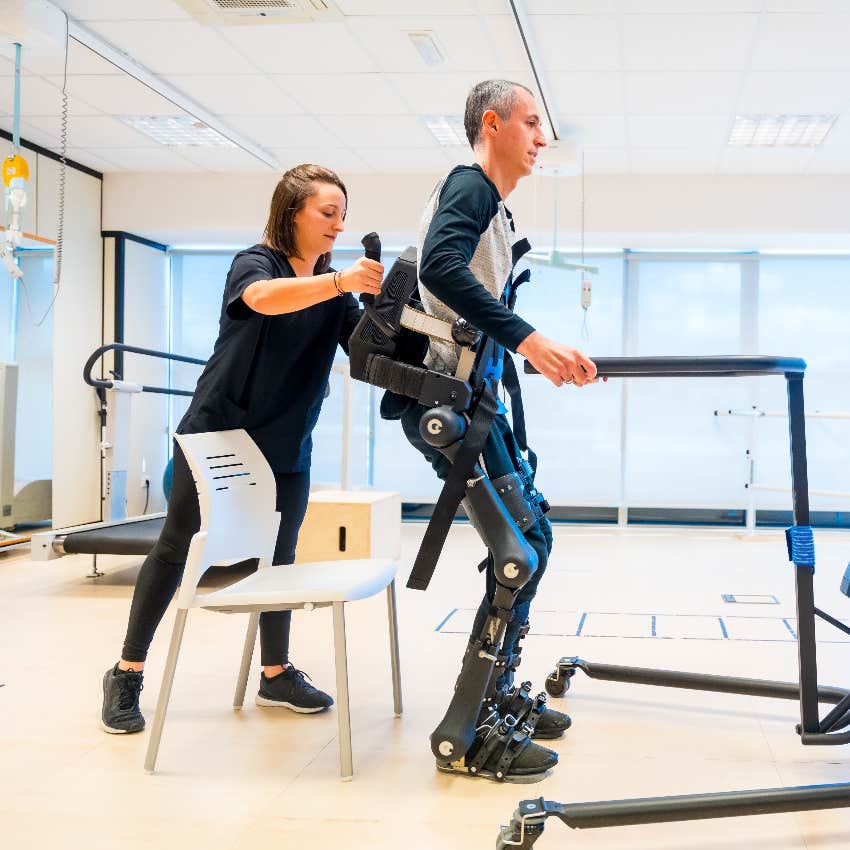Paralyzed Man Can No Longer Walk After Company Tells Him His 10-Year-Old $100,000 Exoskeleton Is Too Old To Fix
The repairs would only cost $20.
 Unai Huizi Photography | Shutterstock
Unai Huizi Photography | Shutterstock Imagine being told that you will no longer be able to walk using a machine that has made it possible for the last decade, all because the manufacturer determined that it was “too old” to be fixed.
This is the reality for Micheal Straight, a paraplegic former jockey who relies on his exoskeleton machine to get around and do day-to-day activities.
However, the battery of the watch he used to operate the machine recently died, and the company refused to provide him with a replacement.
The company told the paralyzed man that the nearly $100,000 exoskeleton machine was too old to fix.
Straight, who was part of the inaugural class of the North American Racing Academy in 2009, was riding the eighth race at Arlington Park when his horse tumbled over. The incident left Straight with head and spinal injuries that rendered him paralyzed from the waist down.
It wasn’t until 2014 that Straight was introduced to his exoskeleton device. The wearable, external framework supports and enhances a person’s physical abilities and assists with movement and strength.
Thanks to the device, which is officially known as the ReWalk Personal Exoskeleton, Straight has been able to take 371,091 steps despite losing the function of his legs.
However, it appears that he will not make it to 371,092 steps since the same company that manufactured the exoskeleton refuses to make necessary adjustments to it.
The man claimed that the company's decision not to fix the 10-year-old exoskeleton is rooted in its desire to earn more profit.
“The reason it stopped is because of a battery in the watch I wear to operate the machine,” Straight wrote in a Facebook post. “I called thinking it was no big deal, yet I was told they stopped working on any machine that was 5 years or older.”
Given that the machine costs nearly $100,000, and a battery replacement would only cost $20, he deemed it "a pathetic excuse for a bad company to try and make more money."
“I don’t think it’s too fair,” Straight told the Paulick Report. “Hopefully we can work something out. I just don’t understand how they can say that after five years, a $100,00 machine is not worth anything. That’s very hard to believe.”
 Unai Huizi Photography | Shutterstock
Unai Huizi Photography | Shutterstock
In 2015, the Jockey Club Safety Net Foundation launched a fundraiser to purchase the exoskeleton for Straight to use at home. The machine has also exempted him from having to attend physical therapy. Now, he fears that he will have to return since the Lifeward company is refusing to repair it.
“I’ve been told over and over again that since the machine is over 5 years old, the company will not do anything for it,” Straight added. “I get frustrated just thinking about it. It’s not fair to people like me, as hard as a paraplegic’s life is, and they’re making it harder.”
Since sharing his predicament on Facebook, Straight has been overwhelmed by support.
“I always knew I had so much support, but now it’s just unbelievable how people are stepping up for me,” he admitted.
Still, he said that it is frustrating that all of the funds that were used to pay for his exoskeleton are potentially being wasted as long as Lifeward refuses to fix the battery.
According to the Lifeward website, the ReWalk Personal Exoskeleton is “built for strength, to keep up with users wherever they want to go” and has proven health benefits, such as “improved spasticity, trunk control, bowel/bladder function, mental health, and more.”
For paraplegics, an exoskeleton is more than just a wearable device, it is their livelihood.
The machine provides them with the mobility they need to get through day-to-day tasks without assistance from others. It is equivalent to that of functioning arms and legs in able-bodied individuals.
Not only do exoskeletons give paraplegics their physical abilities back, but they have profound impacts on their psychological health. Being able to walk again, even with the help of a device, can give people a sense of independence, confidence, and well-being.
Can you imagine if a doctor refused to repair a broken arm or leg because it was not worth saving? Welcome to Straight’s world.
Megan Quinn is a writer at YourTango who covers entertainment and news, self, love, and relationships.

